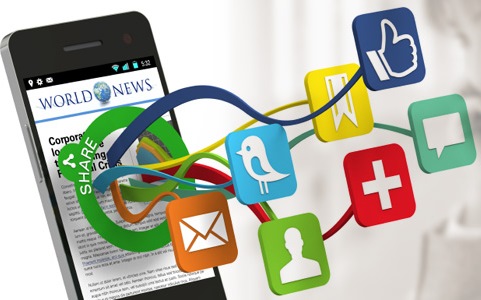ICTpost Social Media Bureau
In our world, social media is ubiquitous. We turn to facebook, twitter, and other social media outlets in our work life, at home, and when we’re looking for entertainment.
But we have reports on a new role for social media helping to search for genes that play a role in Parkinson’s disease (PD). By taking advantage of social media platforms where people regularly spend time, personal genetics companies are able to recruit more people faster into critical research for Parkinson’s disease.
Around 1 million people in the U.S. currently have Parkinson’s disease. But less than 10% of them have the genes that have been discovered so far as related to Parkinson. Past Parkinson’s research has examined families with many members who had the disease, with a focus on finding specific genes that may dramatically increase ones risk of getting Parkinson. The treatment of patients with Parkinson’s disease in India is full of challenges. In addition to the usual questions one would ask when treating a patient with parkinsonism in the west, an Indian neurologist has many others. What is the occupation of the patient? Is he or she covered by medical insurance? Is the patient the breadwinner in the family?
Social Media for Parkinson’s Research
Personal genomics services company 23andMe is using social media and advanced data analysis as part of a large-scale research effort focused on Parkinson’s disease.
The company started recruiting individuals with Parkinson’s disease at conferences and through social media channels. Participants were asked to donate a sample of their DNA for genetic research, and in exchange, 23andMe offered its personalized genetics services to participants at no cost.
In the new social media environment, researchers and clinicians need to engage more actively with the public to articulate the importance of science in determining the benefits and harm of novel treatments and to ensure that patients? concerns and priorities are heard. Unconventional and unproven treatments have long been proposed and tried for many terrible diseases.
Now tools such as Facebook and YouTube make it considerably more likely that patients learn about such therapies, without necessarily learning about their potential limitations.
Online Communities and e-Patients
Since 2010, pharmaceutical companies have joined startups, patient communities and providers in the social media realm. Many startups, particularly those enabling patient communities, have matured and broadened their scope. Hospitals and health systems have moved beyond initial experiments with social media to integrating these tools into their marketing and patient engagement efforts. Facebook is becoming a key tool in patient engagement with encouragement from hospitals to post patient stories or notes of gratitude that are almost universally positive. editor@ictpost.com








